Xavana, uma ilha do amor
is maybe a soft porn movie. Certainly it appears to be a movie in which
everyone is naked all the time. So we're going to make its score,
mostly by Hareton Salvanini, the 896th
Soundtrack of the Week.
It starts with Salvanini singing two dreamy vocal numbers "Com os raios do sol"
has a slowly swirling feel to it, with electric guitar and electric bass blending
with acousic piano and drums for a lush feel, soon enhanced by strings. Wordless
chorus joins Salvanini and the song takes an unexpected detour into Beach Boys territory. "Xavana" is more of a traditional bossa piece, with acoustic guitar
creating most of the setting and Salvanini's vocals again taking
some Brian Wilson-ish flights. The next piece is another straight bossa number, peppier though, with Jeronimo
Jardim tackling the singing part, accompanied by the usual guitar, bass and percussion,
but also some chirpy flutes or whistles. Jardim seems to have written the next song, "Luz da Manhã", even though
Salvanini sings it. This one has a slow, straight rock feel and plaintive vocals
with some unusual electroni textures. "Feita em ar" is a slow waltz with piano and flute featured and Jardim again
taking over the singing. Then we get four instrumental tracks by Salvanini. The first, "Um novo dia", has trombone playing a slow and sweet melody
backed up by strings. "Nostalgia" opens with electric piano and then
switches to alto sax with horn-section support for the tender main melody. After that we get a very groovy, percussion-heavy piece, "Luana",
which is a lovely bit of exotica. And then "Growing" is a funky,
higher energy cue with wah-wah guitar and a great feel from the rhythm section. "Xavana (versão mística)" is a different take on "Xavana", replacing the acoustic
guitar with spacy piano and electric guitar. It's really pretty and the
drums and bass keep a soft, slow pulse running through it. This is followed by a straightforward instrumental take of "Com os raios do sol",
which features harmonica. After this we're back in a sunny mood as acoustic guitar and piano introduce
"Olhe Menina", which has velvety vocal harmonies by Grupo Base. So far there haven't been any female lead singers, which seems odd. But now
we get one with Fátima Mello and "Dia Cedo", a short and sweet song
with guitar and flute and as nice a feel as the others. The record wraps things up with two more Savanini cues. "Saudades do Amor" is a string piece reminiscent of some of Morricone's work
and "Solidão" brings back Grupo Base to add lush vocal harmonies to
another dreamy piano and strings piece. A quick online search suggests that the movie is hard to find and not
worth the effort. The soundtrack is another story, though. It's really good
and easily obtainable, at least in a digital version.
2026 February 09 • Monday
Dan Le Blanc's score for
Behind the Green Door
is the 895th
Soundtrack of the Week.
The first track is called "Sisters" and is a gently swaying, dreamy sort of instrumental
with just a few chords and more repeated piano figures than an actual melody. "Classical Guitar/Anon" is indeed just solo classical guitar and very nice. The
first part is "classical" in feel but the second part has more of a pop/rock sensibility. Violin takes the melody for "Lova's Theme", a slow, solid, plaintive piece
that's very pretty. This is followed by "Bucks' Theme", which is mostly
steel-string acoustic guitar playing chords with a driving rhythm and adding
a few melodic flourishes. The same instrumentation and a similar piece as "Lova's Theme" follow at a slightly faster tempo
follow in "Miner Violin". The score gets mesmerizing and borderline droney with the hypnotic and spacious "Sweet Cheeks",
again featuring violin and guitar. It's atmospheric and meditative. And it's only now that things start to get a little funky and slinky, with the electric bass
guitar sliding and grooving around, accompanied only by very minimal percussion, in "Bare Ass
Naked/Asstray". After that the whole band gets into kind of an interesting rock groove for "Johnny Keys'
Theme", which has the violin in there making it sound pretty different from the standard rock
instrumental, and distorted electric guitar taking some solos. Spacey and unusual sounds, including the inside of the piano, create the
sci-fi or dream sequence-sounding "Cum to Me Neil Murphy", which is immediately
followed by the tender and sweet violin-driven "Diddling". Cheesy keyboards doing a sort of gesture toward circus music begin "Trapeze/Quinn's Riff",
but shifts to a full on synth/keyboard freak out at the end. "Apres" starts out like solo ragtime piano but ends with a pastiche of hauntingly sad
classical music, Chopin or Beethoven, that kind of mood. Just the bass and drums make "Climax" a cool, groovy and intense track, simple but urgent,
while keyboard joins them for "Ben Davidson's Theme" starting out like something Buddy
Miles might have done but switching to a mostly solo ambient keyboard piece. Then it's time for the guitars, bass and drums together for the energetic and tough "Trucking",
with lots of distorted guitar soloing and a great foundation from the rhythm section. Keyboard then joins me for "Funk Me", which starts out as a driving rock number before
swerving into a sort of druggy country rock piece. "Kidnapped" is another funk/rock bass and drums duo, and really cool, and then violin gets
added for the pounding rock instrumental "Tender Under Foot". It's a really good soundtrack and no doubt contributed substantially to the movie's success!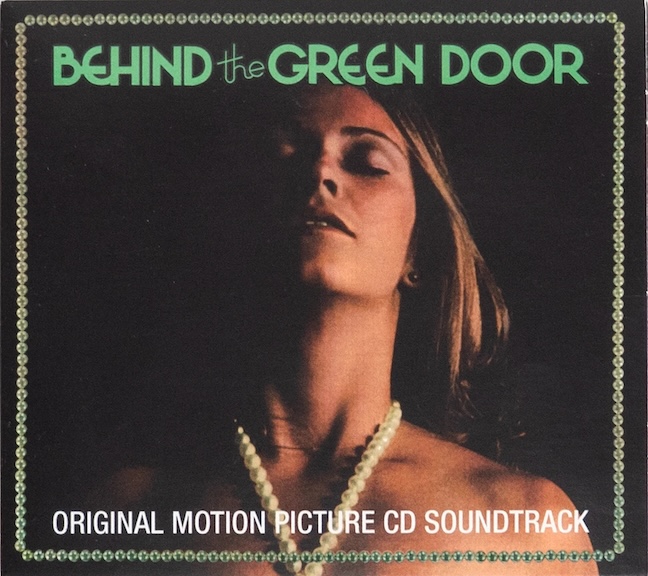
2026 Feburary 06 • Friday
Graham Masterton wrote The Hell Candidate in 1980 while observing
the Ronald Reagan phenomenon and hanging out with Ron's brother, Neil.
The ease with which Reagan could captivate and convert an audience to his side
made Masterton wonder what it would be like if, say, a presidential
frontrunner were actually the devil, actually Satan.
He'd have to be a Republican, right? Hunter Peal is a Republican senator from Colorado
who doesn't have much of a chance to clinch his party's nomination until he
gets possessed by Satan and swerves wide to the right, promising that the United States
will basically take over the world by force, and at home enact race and class apartheid and
subjugate women to the pleasures of men. Not in so many words, of course. Satan's not human but he's politically shrewd
and, as you'd expect, a smooth talker. He also has supernatural powers, beginning
with creating mass hallucinations of a nostalgic and jingoistic nature and graduating
to remote murder, turning a would-be assassin inside out, crushing testicles and
forcing political opponents to soil themselves on television or have a stroke,
depending on his mood, just by thinking about it. He can also change into the form of the beast, a goat-hooved, hairy,
giant creature with two penises whose sexual preference is to use them both
at the same time in a gory rape/murder ritual. This is graphically described
and happens more than once in the book, so consider this if you were thinking of reading it. While originally published in 1981, the year of Reagan's inauguration, this
edition was reprinted in 2017. Who was inaugurated that year? It's startling how many lines from the book, dating from Reagan's "Let's Make
America Great Again" campaign, are still a good fit for the disastrous
"Make America Great Again" cult that's actually keeping many
of Masterton's hell candidate's campaign promises. In his new introduction for the 2017 edition, Masterton writes "welcome back
to the hellish past, and let's hope that it doesn't predict an even more hellish
future". Oh, well…. The candidate's name is Hunter Peal and the story is told in the first person
from the point of view of Peal's press secretrary, Jack Russo. Masterton doesn't waste any time dithering and the book zips along,
gradually raising the stakes as it reveals more and more of Peal's
infernal power and ambition. Refreshingly there isn't a lot of quibbling about what's
happening. At first, of course, all unusual things are explained
away in various ways, because nobody's going to say oh it must be
supernatural, probably the devil. Even when it becomes clear that the Peal campaign is a huge threat
to the world, no one dares quit because the only chance is to
stay close and hope for an opportunity to do something about it. A nice touch is that a lot of the devil's power comes from people themselves,
from the baser parts of their nature. Greed, lost, anger, violence, envy,
all that is buried inside to varying degrees and it is to these elements that
Satan can appeal and find strength. He gets people's votes not in spite of who they are but because of who they are—in
part, at least. By the time they find out what they really voted for, it will
be too late. It's all depressingly familiar but an excellent premise for a horror
novel and this one is well done. The first line is "I was often asked, in the weeks after Hunter Peal was elected
President, just when I was first convinced he was going to win".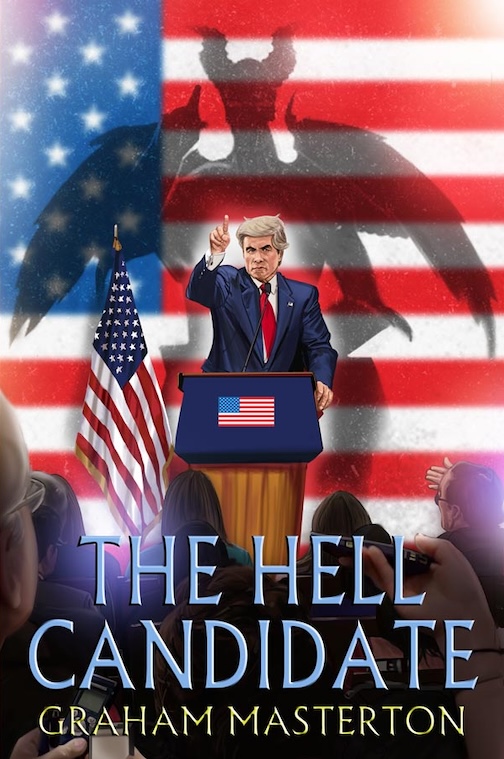
2026 Feburary 04 • Wednesday
Reading the Harpur and Iles series by Bill James the last twenty-five years
or so has been extremely pleasurable. And there are several books waiting
for me but I had to take a break from the novels to tackle James's The Sixth Man, a short-story collection
that includes some Harpur and Iles pieces.
While not quite as satisfying as one of the novels, this was an enjoyable change of pace. The Harpur and Iles books are like chapters in a much larger book—A Dance to the Music
of Crime is how I think of it, especially since James has some kind of critical
work on Anthony Powell in his bibliography (not under the James pseudonymn, though)—and
the Harpur and Iles stories here could easily have been chapters in one of the individual
books. The title piece is a full-strength distillation of the relationships, themes, with and irony
that suffuse the series. Iles rants about his wife's affair with Harpur, Harpur worries
that Iles might lose control at a funeral, the conversation between the two has
the high/low seesaw of Jeeves and Wooster, recurring words such as "symbolic" and
"encapsulates" serve as bits of comedic business that simultaneously support
the structure of the story. It's a Harpur and Iles book in miniature. In "For Information Only", we hear from an informant in the world of Harpur and Iles,
not Harpur's informant, Jack Lamb, but another one, whose knowledge isn't
actually desired by the police. Quite the opposite, in fact. "Free Enterprise" turns our attention to Ralph Ember and Mansel Shale, the two
main drug dealers on Harpur and Iles's patch, who have an understanding
with Iles that they'll be allowed to control the drugs trade—there will
always be a drugs trade—as long as they can keep peace, more or less,
on the streets. The invasion into the turf by East European crime gangs
is threatening this arrangement, as it has done for several novels now,
and this story, a comedy of manners and language, is like a one-act play
centered on this conflict. Jack Lamb appears in "Rendezvous One", in response to an emergency
regarding an undercover officer that Harpur has installed with one of the local
drugs gangs, very much unofficially and absolutely against Iles's orders. A
last-minute rescue operation goes into effect and, naturally, ends up
involving Iles anyway. The other stories include, well, a poem, actually, called "Going Straight",
a first-person narrative of an ex-con working as a waiter. It's sensitive
and amusing as well as bittersweet. "Elsewhere" is a delirious story that's sort of about phone sex and left me
in amazement that James actually came up with this idea in the first place.
It dazzles and dances on the edge of the surreal but has a disappointing ending. There are two World War 2 stories. "War Crime" is a reminiscence of
an elderly woman, about dual romances she had as a teenager with a boy from
London and an older Italian POW. As usual, the comedy, drama and intrigue come
from the human tendency to rationalize, equivocate and self-mythologize. The other one, "A Bit of Eternity", involves a murder in an air-raid shelter
during a bombing run by the Germans. The concern shown to this one, small murder
in the midst of a huge, noisy mass murder, is quaintly ironic, which is clearly
part of the point. The academic approach to crime fiction is lampooned in "Body Langauge",
references Philip Marlowe and, perhaps, in its name dropping of "The Faerie
Queene", Robert B. Parker's Spenser. A university professor teaching a course
in crime fiction has an actual murder occur in his classroom, in front of his
students, giving them the opportunity to apply what they've
learned about crime fiction to a real-life crime. The title itself is a joke
and the whole story is a sustained witticism. "Fancy" was a misfire, an unsuccesful attempt at a one-joke short story about
men wishing to be mistaken for a serial rapist. This one should have just been
left out of the collection. A story about suburban adultery, "Big City" is well done and notable for
several memorable phrases: "aperitified people", "secrecy above hygiene". It's
a good companion piece to "Elsewhere". The most mysterious story in this collection is "At Home", which is told entirely
in letters. At first it seems to be a fairly clear account of a woman whose
husband is insanely violent and abusive. When it switches to letters written
by the husband, the reader can no longer be certain. Oblique references to
hedge clippers and weekend orgies simply make things less clear but more
exciting. Finally there's a long police procedural story, "Emergency Services",
about a young, low-ranked, female police officer whose investigation of
the murder of a possible informant leads her into high-level crime and
corruption. This one feels like it could take place in the Harpur and Iles
world but there are no cross-over characters or places. It's a great read,
very well done, and I wouldn't mind spending more time with Detective Constable
Helen Baring.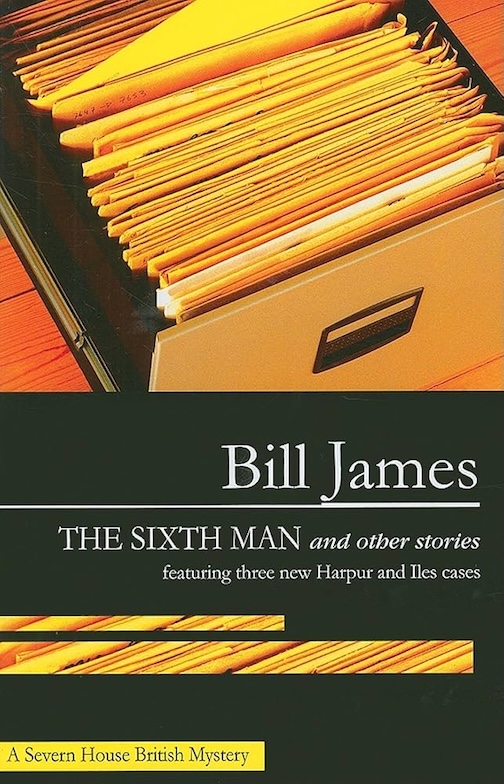
2026 February 02 • Monday
What about music for porn films? Nobody has said anything
to me about it but I assume it's what everyone's thinking. And so
Getting Off: The Seductive Sounds of 70's Adult Cinema
is the 894th
Soundtrack of the Week.
I've used an interest in soundtracks as the excuse for watching any number of, uh,
not very good movies but have never tried the old "I watch porn for the music" gambit.
But maybe porn soundtracks are about to have their moment, just like library music got
its moment. This compilation is really strong, packed with funky instrumentals. It starts
with "Move On" by L. Hurdle and F. Ricotti. Bass guitar is the most prominent
instrument and provides the main throughline, with drums and percussion and keyboards
also playing crucial roles. At just over seven minutes long, Anton Scott's "I.P. Walk" is a sprawling groovy
jam with lots of keyboard and guitar soloing. Then there's a laidback, slower but tougher groove, with lots of space and excellent
conga playing, in Alan Tew's "Gentle in the Night",
which could be a great cue for an action hero. And maybe that's exactly what it is. It gets much more uptempo after that with a kind of funk/bop "Power Play" by
Ray Davies—is it the Kinks Ray Davies? I don't know. But this one features some
energetic horn playing. "Nude Interlide #1" is the first of several tracks by "Unknown Artist". This one is
a nice, slinky, post-In a Silent Way jazz/funk piece with a sexy female voice talking about the benefits
of putting "a sex drink in your drink". The music then drifts back to crime jazz/funk with Alan Hawkshaw's "Hawkwind and Fire",
a fairly conventional piece with a cool figure played by horns while keyboard and guitar
and bass and drums lay down a really good groove. There's a wailing guitar solo too. What about disco? you ask. Well Brian Bennett's got you covered with "Disco Fever",
which as a relentless disco beat with some nice trumpet playing. Next up is "The Bends" by Roger Webb & Keith Grant, perhaps the most interesting
track on the CD. It's got crazy sci-fi keyboards (like the fembots cue in
The Bionic Woman), a really heavy drum beat with a huge distorted bass sound
and long, sustained, distorted guitar playing. Everything about this one is great. Alan Tew then returns with "The Heist", which definitely sounds like 1970s
crime action music for film or television. It's got some tight writing,
"Theme from S.W.A.T." energy and some wild keyboard flourishes. "Nude Interlude #2" has a similar feel to the first one but is a little slower and a little
lower, but very relaxed and also has a bit of movie dialogue, mostly people
chuckling and making pleasure sounds. "Nude Interlude #3" is a little peppier and sunnier. And, like the "Nude Interlude" cues, the remaining tracks on the record are by unknown artists. "Carl's Cabana" sounds pretty much like generic porn soundtrack music, or at least
how it's popularly imagined and represented, complete with someone moaning with pleasure
over the music. But there's also a sweet, wistful quality to the melody, it's not
cut from whole cloth. While "Fernando's Blues" is a straight blues/rock number it also has a hard funk edge
and really nice keyboard and guitar soloing. The last cue, "Bang 'Em Hard", is aptly titled as the instrumentation is only drums and other
percussion and it's a great piece, just solid rhythms.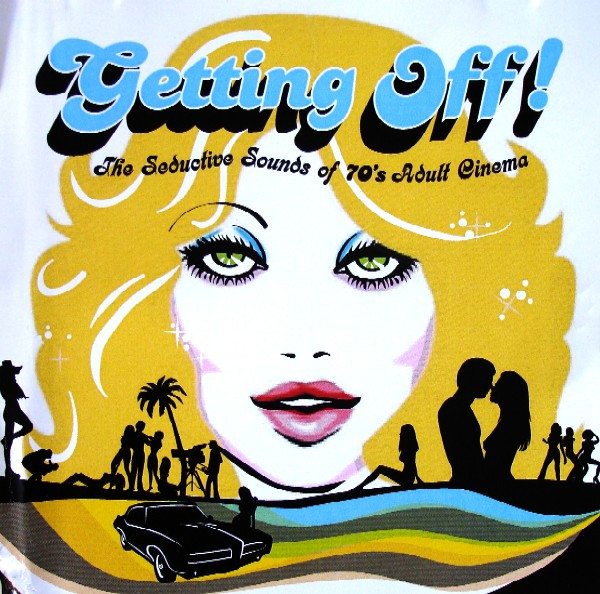



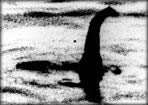 APPEARANCES
APPEARANCES